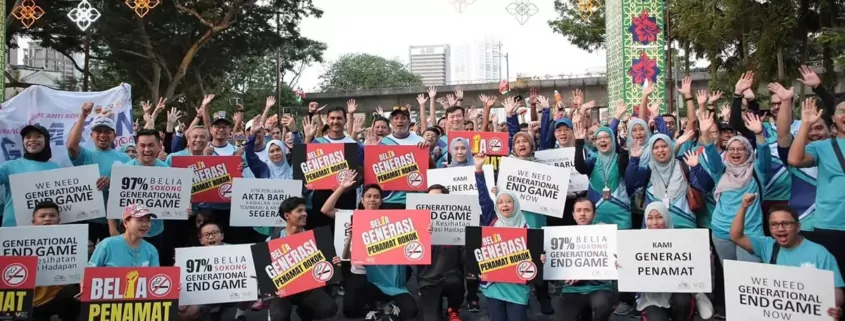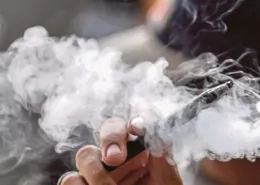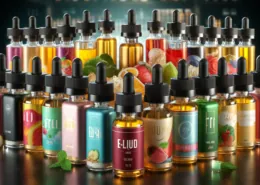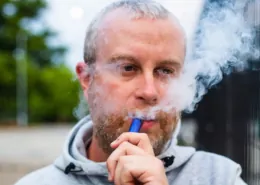Malaysian Advocates Demand Nationwide Vape Ban & GEG
A coalition of 41 Malaysian activists and non-governmental organizations (NGOs) has issued an urgent call for the federal government to implement a nationwide ban on all vape and e-cigarette products. Citing alarming rates of youth addiction and the infiltration of synthetic drugs into vape liquids, the group argues that current regulatory approaches are insufficient and that decisive action, including the potential reintroduction of the Generational End Game (GEG) policy, is needed to protect the nation’s youth.
The advocates contend that despite numerous calls for a complete ban due to health and social reasons, the Malaysian government has primarily focused on regulation and enforcement, possibly influenced by the substantial vape industry (estimated retail value of nearly RM3.5 billion in 2023) and the tax revenue generated (RM141.1 million from 2021-2024 from vape liquids). However, the signatories argue this represents a short-term perspective that fails to address a brewing crisis among young Malaysians.
Alarming Youth Vaping Statistics and Illicit Drug Concerns
The call to action is fueled by concerning data. The National Health & Morbidity Survey (NHMS) 2022 revealed that 14.9% of school students aged 13-17 were e-cigarette/vape users (23.3% male, 6.2% female). This translated to an estimated 400,000 teenage vapers in 2022, a figure the advocates believe has easily surpassed 500,000 and continues to grow rapidly. In contrast, adult vaping prevalence was reported at 5% to 5.8% in 2023 surveys.
The group highlights the widespread access and promotion of vape products to young people, often near school premises, with many primary school students reportedly showing interest. They argue that the government’s decision not to ban vaping may inadvertently lead youth to perceive it as harmless.
A particularly grave concern raised is the contamination of vape products with illicit substances. The advocates cite a recent disclosure by Deputy Inspector-General of Police (IGP) Ayob Khan, who stated that 65% of confiscated vape devices contained synthetic drugs such as methamphetamine and fentanyl. “It is not just tobacco they are puffing but chemicals that will irreparably harm their brains and their lungs,” the letter warns, linking this to a potential increase in drug addicts. This concern is amplified by Deputy Prime Minister Ahmad Zahid Hamidi’s recent statement that Malaysia recorded 192,857 drug users in 2024, up by nearly a third from the previous year, with 61% aged 15-39.
State-Level Bans Deemed Insufficient Without National Action
The signatories acknowledge and commend several state governments that have taken unilateral action or are planning to prohibit vape sales. These include:
- Johor (2016): No new licenses for vape sales.
- Kelantan (2016): Banned vaping products in all business premises.
- Terengganu (August 1, 2025): Statewide ban on vape sales.
- Perlis (August 1, 2025): Statewide ban on vapes and e-cigarettes.
- Kedah (by end of 2025/early 2026): No new licenses for vape sales, existing ones not renewed.
- Selangor & Penang: Reportedly deliberating potential bans.
However, the group argues that without a comprehensive national ban that includes robust controls on online sales, it remains relatively easy to obtain vape products even in states with local prohibitions. They express surprise that the Sarawak government has not taken similar steps, given that the rate of vaping among Bumiputera Sarawak school students (22.5% in 2022) was higher than the national average.
The letter also points out that several ASEAN countries, including Brunei, Cambodia, Thailand, Singapore, and Laos, have long implemented bans on e-cigarettes, suggesting Malaysia is lagging behind regional leaders in this aspect.
Addressing Harm Reduction Arguments and Proposing Solutions
The advocates acknowledge the argument that vaping can be a safer alternative for adult smokers trying to quit traditional cigarettes. For these individuals, they propose a system of “prescription-based support as they work to reduce their nicotine dependence,” rather than widespread retail availability.
Their primary appeal is for the government to “be prudent of the future of our children” and institute a nationwide ban on all vape and e-cigarette products. They go further by suggesting the reintroduction of the Generational End Game (GEG) policy, which aims to create a smoke-free and vape-free generation by prohibiting the sale of such products to anyone born after a certain year.
Recognizing the potential pitfalls of prohibition, the signatories emphasize that any ban must be accompanied by robust enforcement measures and harm reduction strategies to prevent the growth of a black market. This includes:
- Ongoing, comprehensive public health campaigns to educate about vaping risks, particularly for youth.
- Enhanced enforcement against illicit sales through all channels, including online and cross-border.
- Strategies to support adult smokers who have switched to vaping to eventually quit nicotine altogether.
“We need to have a national ban on vape products if we are serious about protecting our youth,” the letter concludes. “Otherwise, we risk a new generation of teen addicts.” The signatories include prominent child rights activists, medical professionals, and various NGOs dedicated to public health and welfare.
- Malaysia Negeri Sembilan Backs Vape Ban, Awaits Clear Laws - August 5, 2025
- Is It Illegal to Vape or Smoke While Driving in Massachusetts? - August 5, 2025
- Austria Plans to Ban Disposable E-Cigarettes - August 5, 2025









